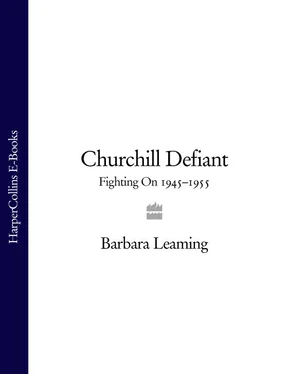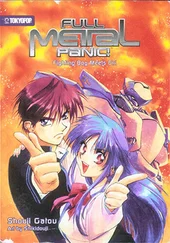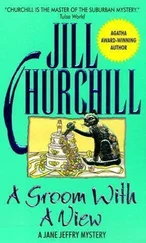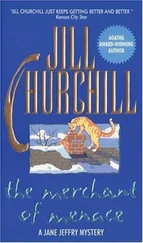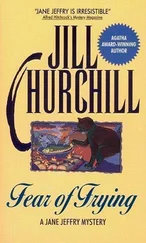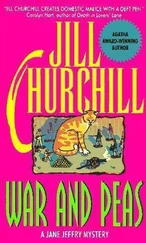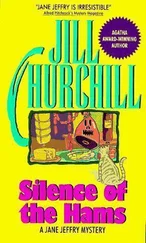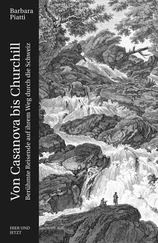Furious at being told that he, not Stalin, was threatening the peace, Churchill reminded Truman that a shared love of freedom ought naturally to align their two nations against the Soviet Communists, who followed a different philosophy. With Churchill threatening to break publicly with Washington if Truman dared to see Stalin alone, the President appeared to back down. He agreed to three-power talks, but at the last minute he declined Churchill’s pleas to postpone the retreat of the American army at least until after the conference.
When Churchill returned to his rose-pink, lakeside villa in Potsdam following the visit to Hitler’s bunker, he learned that Stalin had arrived in Germany. The leaders were to meet the following day at 5 p.m. in the former palace of the German crown prince. Due to Truman’s decision to withdraw his troops, however, Churchill was to face Stalin without the bargaining counter he had been hoping for. As he prepared to go into the talks, he was further wrong-footed by the fact that he had no idea of how much time he had to get what he wanted from Stalin. Prior to coming to Potsdam, Churchill – who had promised the British people a general election as soon as Hitler was defeated – had fought the first general election campaign in a decade. Polling day had been 5 July, but three weeks had been allotted to permit the service vote to come in before the total vote was counted. On 25 July, while the Potsdam Conference was still in progress, Churchill was due to fly back to Britain (briefly, he hoped) to learn his political fate.
The rapturous reception he had received in the course of his thousand-mile electoral tour strongly suggested to him that he would still be prime minister when the second round of talks began. Everywhere Churchill had travelled that spring, multitudes had come out to see and thank him for what he had done in the war. Standing nine and ten deep, enthusiasts had waved flags, sung patriotic songs, and cried out, ‘Good old Winnie!’ Repeatedly they had closed in on the hero’s open car and the progress of the motorcade had been slowed to a walking pace. Churchill had commented at the time that no one who had witnessed his reception could have any doubt about the outcome of the poll.
But what if there was an upset? What if poor Conservative showings in recent by-elections foretold a general swing to the left in British politics, as certain commentators were suggesting? Churchill had encountered some heckling, particularly in the last days of the campaign. Had these been isolated incidents, or did they reflect broad sentiment for change as Britons considered what they wanted their lives to be like after the war? Churchill had brought his Labour oppon -ent, Clement Attlee, to Potsdam to make it clear that all of Britain was being represented at the conference table, as well as to ensure that there would be no break in Attlee’s knowledge of affairs. But by his very presence, Attlee was also a reminder that when Churchill went home for the election results, they might prevent him from completing what he had begun with Stalin.
Attlee, who had been deputy prime minister in Churchill’s wartime coalition government, attended a small luncheon at the Prime Minister’s villa on the afternoon of 17 July. Also present was US Secretary of War Henry Stimson. Churchill lingered at the table bantering with his guests until half an hour before he was scheduled to see Stalin and Truman. With Attlee, he joked about the British general election as if there had not been a harsh word between them during the often exceptionally bitter campaign; and with Stimson, he exchanged light-hearted personal reminiscences about their younger days. In the leisurely course of the meal, Stimson gave no sign that he had anything urgent to convey to his host or that he desired to speak to him privately. Only when Churchill was showing Stimson out did the latter inform him that the world’s first atomic bomb had been successfully tested the day before in New Mexico. Though Britain had been a partner in the secret project to develop the new weapon, deadlier than any yet in existence, Churchill had not known in advance the date of the test. If the bomb worked, it promised to end the Pacific war quickly and to spare a great many Allied soldiers’ lives. In his present predicament, Churchill also sensed that it might be capable of something more. Nothing could be certain for there were no details as yet, but here potentially was the card he needed to persuade Stalin to come to terms in Europe.
Until Churchill had additional information, he was intent that this first bit of news from New Mexico be withheld from Stalin. Truman had already thrown away one bargaining counter, and Churchill wanted to be sure that it did not happen again. Stimson’s insistence that the Soviets really ought to be notified of the test left Churchill to go off to his meeting both excited about the new development and worried that the Americans might be about to squander another opportunity. Churchill, who had met with Truman the previous day, knew that the President had been lunching with Stalin that afternoon. Churchill had no idea whether Truman, who had had the information since the previous evening, might already have told Stalin about the bomb or even agreed to share its secrets with his Soviet ally, as Roosevelt had once been inclined to do. The last-minute timing of Stimson’s disclosure made it impossible for Churchill to talk to the President beforehand.
At the first plenary session at the Cecilienhof Palace – in whose courtyard the Russians had planted masses of geraniums in the form of a 24-foot-wide red star – Churchill played for time. For weeks, he had been pressing Truman to agree to the earliest possible meeting; now, he meant to go as slowly as possible. Previously, he had been insistent that the most contentious issues be addressed without delay; now, he told his fellow leaders, ‘We will feel our way up to them.’ Truman was in a difficult, almost impossible position at Potsdam. In the days before the conference, he had been nervous about facing giants like Churchill and Stalin, and with good reason. Though a dying man, Roosevelt had done nothing to prepare his successor for the presidency. Roosevelt never spoke to Truman confidentially of the war, of foreign affairs, or of what he had in mind for the postwar world. When Truman suddenly landed in the Oval Office after only three months as vice president, he had to struggle to catch up. Devoid of foreign policy experience, he pored over memoranda, briefs, and correspondence on international affairs. He conferred with presidential advisers, who, to his perplexity, offered conflicting advice. On the voyage to Europe, he absorbed as much information as he could from various coaches. At his first meeting with Stalin and Churchill together, he read aloud from prepared statements and thereafter was careful to stick to positions that had been well worked out in advance.
Churchill’s newly unhurried pace irked Truman, who protested, ‘I don’t just want to discuss. I want to decide.’
Churchill came back impishly, ‘You want something in the bag each day.’
Looking ahead to subsequent plenary sessions, Truman went on, ‘I should like to meet at four o’clock instead of five.’
‘I will obey your orders,’ Churchill replied.
Clearly amused, Stalin interjected, ‘If you are in such an obedient mood today, Mr Prime Minister, I should like to know whether you will share with us the German fleet.’ When the meeting concluded, Stalin invited the others to the banquet room, the length of which was filled by a table loaded with caviar, cold meat, turkeys, partridges, and salads, as well as vodkas and wines ‘of all hues’. Truman stayed less than ten minutes. Churchill, though he had previously complained of indigestion, happily ate and drank with Stalin. Pointing out that they had much to talk about privately, Stalin asked Churchill to have dinner with him the following evening. It promised to be a late night. In contrast to Truman, who preferred to go to bed early, Churchill and Stalin were both night owls. On the present occasion, Stalin remarked to Churchill that he had grown so accustomed to working late during the war that even though the necessity had passed, he could never get to sleep before 4 a.m.
Читать дальше
